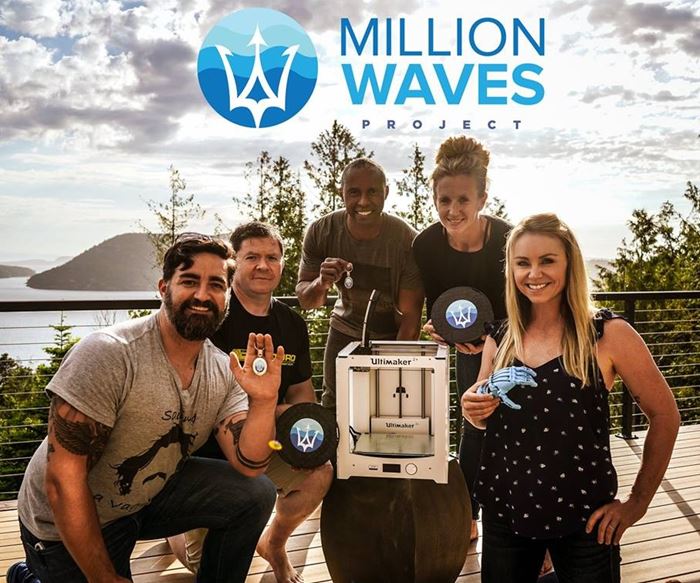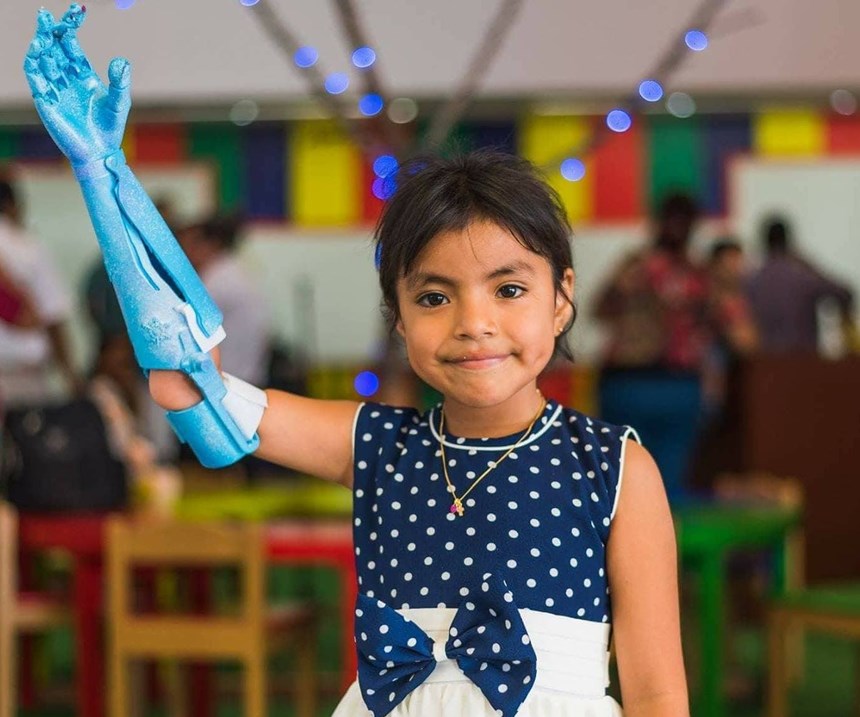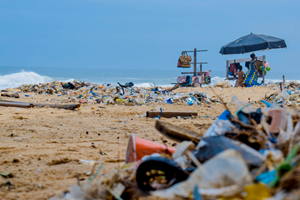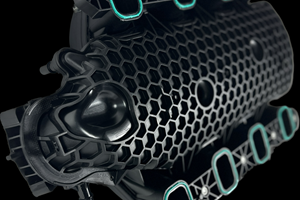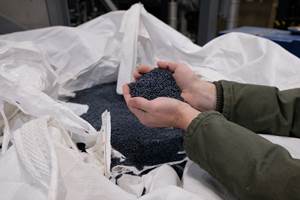Ocean Plastic 3D-Printed Prosthetic Limbs
New initiative takes reclaimed ocean plastic and uses it to 3D print custom prosthetic limbs for children.
Business consultant Chris Moriarity had no background in recycling, 3D printing or working with ocean plastic. Yet, one fateful night he woke up and had the idea to connect the dots: bring together two unacceptable global situations and offer a sustainable solution.
“I realized that one of the world’s most shameful problems could be reclaimed and turned into something to be proud of—a story of redemption we could all take part in—my wife was as excited as I was, even though it was 2 a.m.,” he says.
And the Million Waves Project was born. The initiative, a 501C(3), launched Earth Day, takes reclaimed ocean plastic and uses it to 3D print custom prosthetic limbs for children. The project has teamed up with Washington CoastSavers, a group actively engaged in saving Washington’s Pacific Coast from the harm of marine debris. The two ocean-saving organizations plan to work together to close the loop on some of the thousands of pounds of plastic pollution collected each year in Washington. Washington CoastSavers’ most recent cleanup resulted in 18.8 tons of garbage collected by nearly 1,300 volunteers.
The Million Waves Project will source some of the plastic from the CoastSavers’ cleanups to 3D print limbs. Million Waves hopes to start by processing the PET (food and drink containers) the Washington CoastSavers volunteers collect; cleaning, pulverizing, extruding, spooling and finally printing with the plastic. Moriarity says the company will soon receive a new shredder/granulator so that they’ll be 100% self-reliant.
Typically, much of the waste collected ends up in landfills or is sent to local recycling centers, but this project finds a home for the usable marine plastic and recreates it for good. Washington CoastSavers is looking forward to providing a place for the waste to go once collected.
Nicole Harris Washington CoastSavers Steering Committee member says: “Closing the loop by reclaiming marine plastics is the ideal situation for the waste collected during our cleanups. It is so exciting to partner with Million Waves Project on this creative and thoughtful solution to our plastic pollution problem. Being able to provide a resource for such a good cause adds to the reward our volunteers feel in doing their already impactful work.”
The two groups plan to convene in September at the CoastSavers International Coastal Cleanup event to celebrate the partnership. From there, the Million Waves team will begin the process of transforming the viable plastic into 3D-printed limbs.
Another strategic partnership, 3DUniverse, is providing the scaled implementation of the Million Waves Project’s long-term strategy; beginning with connecting funds raised by the Million Waves project to people needing limb-making parts. The e-Nable community that is providing the open source 3D prosthetic templates and general support for the project.
Million Waves Project is also working with orthopedic surgeon Jonathan Shafer and Registered Nurse Jodi Shafer who are providing medical expertise.
Moriarity says that each prosthetic cost about $45 to source, print and deliver. The public can get involved as well by sponsoring a 3D-printed prosthetic limb for $45. There’s also an opportunity to donate to the research and development of 3D-printed wheelchairs.
“We are just getting started,” Moriarity says, “This is a world-changing operation, and everyone can get involved on the ground floor. For as little as $45, we can provide a limb for someone that will dramatically change their life—they can go to work, or play ball with their friends—and we have the technology do it responsibly.”
Read more about growing efforts to reclaim plastics from the ocean in PT’s July cover story.
Related Content
General Polymers Thermoplastics to Further Expand Distribution Business
NPE2024: Following the company’s recent partnership buyout, new North American geographic territories are in its sight.
Read MoreFungi Makes Meal of Polypropylene
University of Sydney researchers identify two strains of fungi that can biodegrade hard to recycle plastics like PP.
Read MoreBASF Highlighting How They 'Make, Use and Recycle Future Solutions'
NPE2024: BASF is using its proprietary computer-aided engineering tool Ultrasim when designing for sustainability in a broad range of industries.
Read MoreNew Facility Refreshes Post-Consumer PP by Washing Out Additives, Contaminants
PureCycle prepares to scale up its novel solvent recycling approach as new facility nears completion.
Read MoreRead Next
People 4.0 – How to Get Buy-In from Your Staff for Industry 4.0 Systems
Implementing a production monitoring system as the foundation of a ‘smart factory’ is about integrating people with new technology as much as it is about integrating machines and computers. Here are tips from a company that has gone through the process.
Read MoreLead the Conversation, Change the Conversation
Coverage of single-use plastics can be both misleading and demoralizing. Here are 10 tips for changing the perception of the plastics industry at your company and in your community.
Read More
